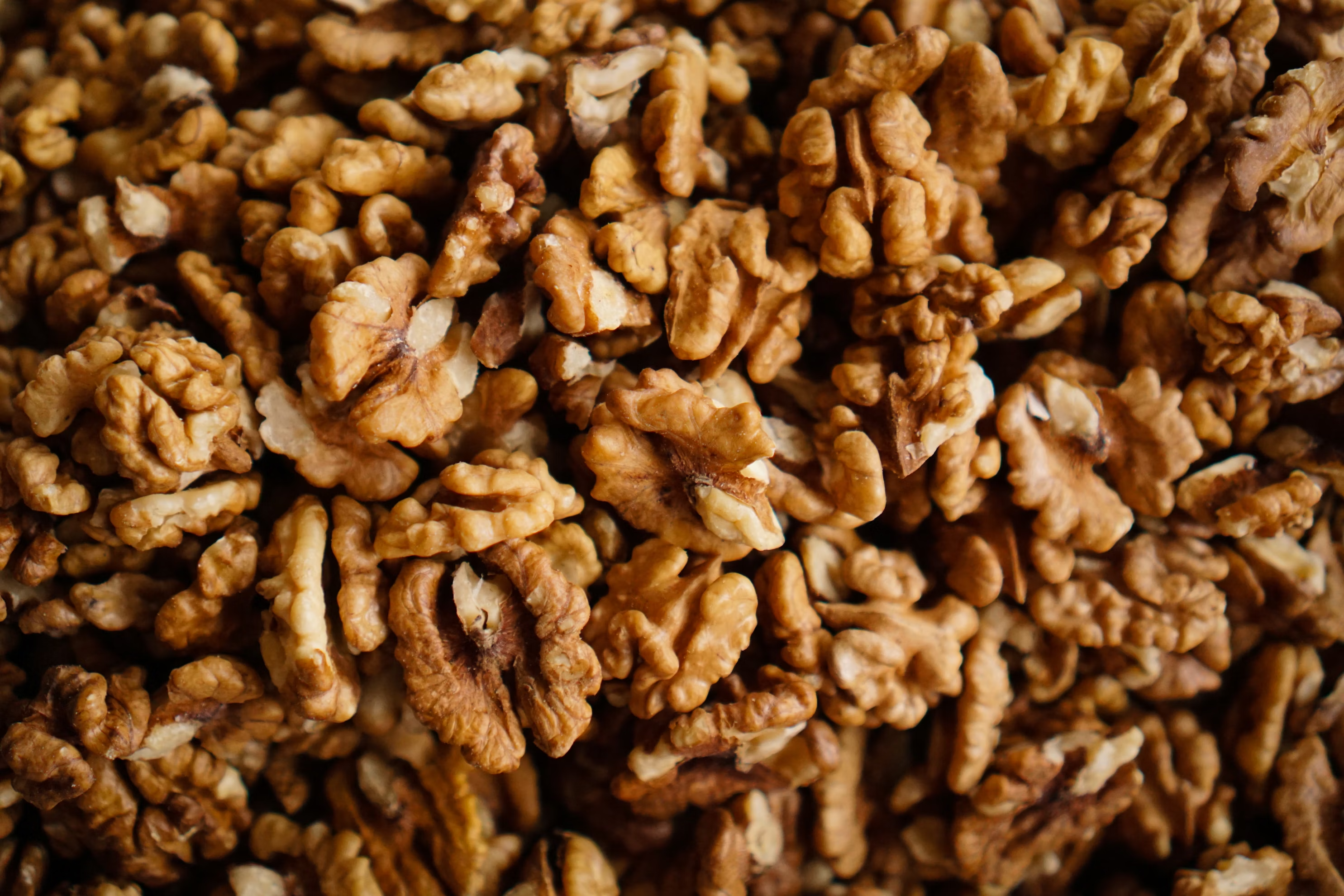Walnuts: Calorie Count & Nutrition Powerhouse
Walnuts are a nutrient-dense food, often lauded for their health benefits and incorporated into many diets for their nutritional value. When it comes to understanding their caloric and nutrient content, it's essential to look at the specific nutrition facts. One ounce of walnuts, roughly equivalent to 14 halves of the nut, contains about 185 calories. This energy primarily comes from fats, particularly polyunsaturated fats, which include omega-3 fatty acids known for their beneficial effects on heart health.

Walnuts are a nutrient-dense food, often lauded for their health benefits and incorporated into many diets for their nutritional value. When it comes to understanding their caloric and nutrient content, it's essential to look at the specific nutrition facts. One ounce of walnuts, roughly equivalent to 14 halves of the nut, contains about 185 calories. This energy primarily comes from fats, particularly polyunsaturated fats, which include omega-3 fatty acids known for their beneficial effects on heart health.
Beyond their caloric content, walnuts are packed with essential nutrients. They are an excellent source of antioxidants and provide a good amount of fiber, protein, and several essential minerals. These include calcium, magnesium, and potassium, all of which contribute to the overall nutritional profile of walnuts. Integrating walnuts into one’s diet can be part of a balanced approach to eating, supporting various aspects of health due to their rich composition of fats, proteins, and other nutrients.
Nutritional Profile of Walnuts
Walnuts are a nutrient-dense food, offering a rich blend of vitamins, minerals, and healthy fats, as well as notable contributions to overall health and dietary considerations.
Macronutrients and Calories
An ounce of walnuts roughly accounts for 185 calories and contains predominantly fat, moderate protein, and minimal carbohydrates. The fat content primarily consists of polyunsaturated and monounsaturated fats, including significant amounts of alpha-linolenic acid (ALA), a plant-based omega-3 fatty acid. Furthermore, walnuts provide a good amount of protein and dietary fiber which can contribute to a feeling of fullness.
- Fats: About 18.5g (65% of total weight)
- Saturated fat: ~1.7g
- Polyunsaturated fat: ~13.4g
- Monounsaturated fat: ~2.5g
- Protein: Approximately 4g
- Carbohydrates: Roughly 4g
- Dietary Fiber: ~2g
- Sugars: ~0.7g
Vitamins and Minerals
Walnuts are packed with a variety of vitamins and minerals, essential for maintaining good health. They are a significant source of magnesium, phosphorus, copper, manganese, and vitamin B6. Vitamins E and B1, as well as minerals such as iron, zinc, and selenium, are also present in lesser quantities.
- Magnesium: 45mg
- Phosphorus: 98mg
- Copper: 0.45mg
- Manganese: 0.88mg
- Vitamin B6: 0.15mg
Health Impact
Consuming walnuts has been associated with a multitude of health benefits, including improving heart health and reducing the risk of cardiovascular disease due to their high levels of omega-3 fatty acids and antioxidants. They also contain compounds like ellagitannins which are thought to contribute to cancer prevention, specifically breast and prostate cancer. Furthermore, the presence of alpha-linolenic acid (ALA) and polyunsaturated fats supports the reduction of inflammation and might assist in weight management.
Dietary Considerations
Walnuts can be a valuable addition to the diet, especially for those looking to increase intake of plant-based omega-3 fatty acids and polyunsaturated fats. The fiber in walnuts supports gut health and may positively impact blood sugar control, making them a favorable choice for those with diabetes. Individuals should be mindful of walnut consumption if they have tree nut allergies. When incorporated into a balanced meal, walnuts can support weight loss and offer a variety of nutrients important for brain health and overall wellbeing.
Culinary Uses of Walnuts
Walnuts are not only valued for their rich nutritional profile, including healthy polyunsaturated fats and omega-3 content, but also for their versatility in the kitchen. They can enhance various dishes, from salads to baked goods, while providing essential nutrients.
Walnut Varieties and Selection
There are primarily two types of walnuts consumed: the English walnuts and black walnuts. English walnuts, also known as Persian walnuts, are more commonly found in supermarkets and have a milder taste suitable for a range of recipes. When selecting walnuts, look for unshelled walnuts that feel heavy for their size and do not rattle, as this indicates freshness.
Incorporating Walnuts into Meals
Walnuts can be added to meals in various ways for added texture and nutritional value. They are a fantastic topping for salads, mixed into yogurts or oatmeal, or used as an enriching component in baked goods. Walnut oil is another culinary form that can be used in dressings and marinades to infuse dishes with a nutty flavor.
Nutrient Preservation in Cooking
Cooking methods can affect the nutrient content of walnuts. To preserve the nutrients, walnuts should be cooked at low to moderate temperatures. This prevents the deterioration of omega-3 fatty acids and helps maintain their beneficial properties. Toasting walnuts briefly can enhance their flavor while still preserving their mineral content.
Nut Allergy Considerations
When using walnuts in meals, one must always consider potential allergies. As tree nuts, walnuts can provoke a reaction in individuals with nut allergies, ranging from minor irritation to severe anaphylaxis. It is crucial to be aware of guests' dietary restrictions and clearly label any dishes containing walnuts or other tree nuts.
Want more posts like this?Sign up for our FREE newsletter →